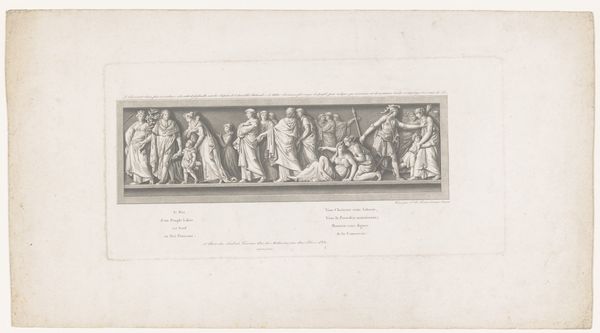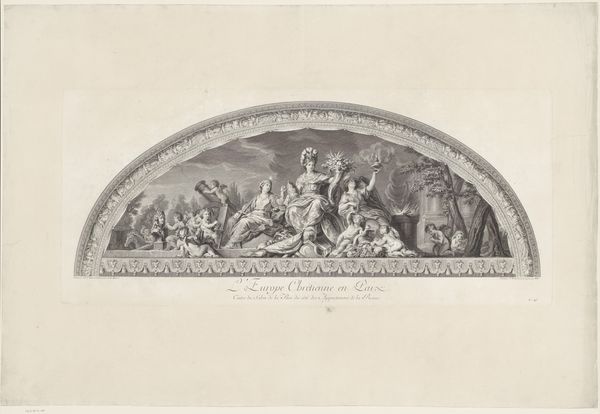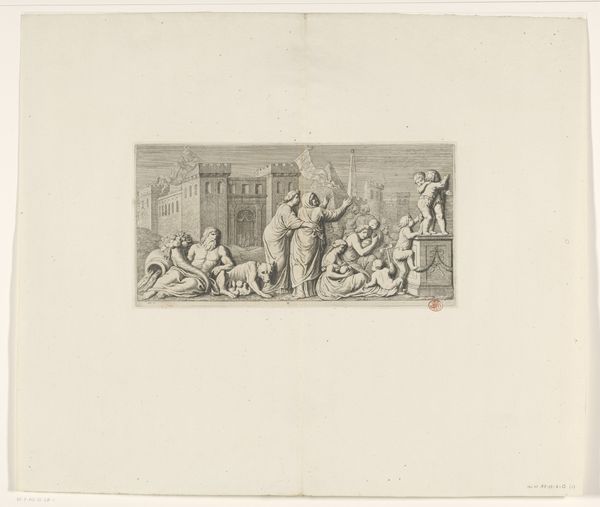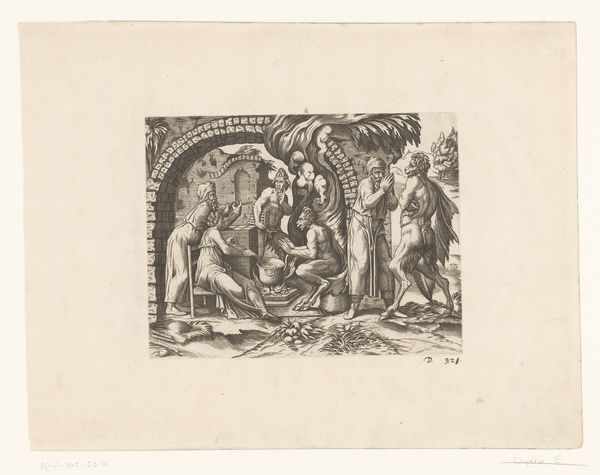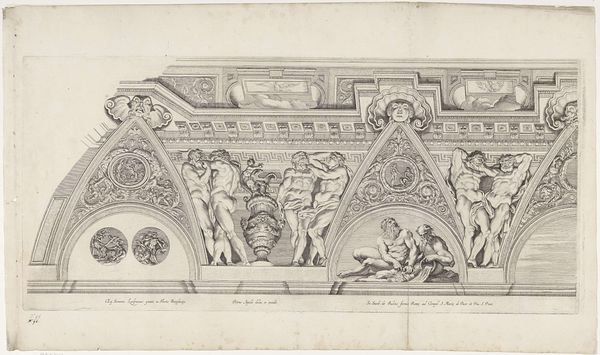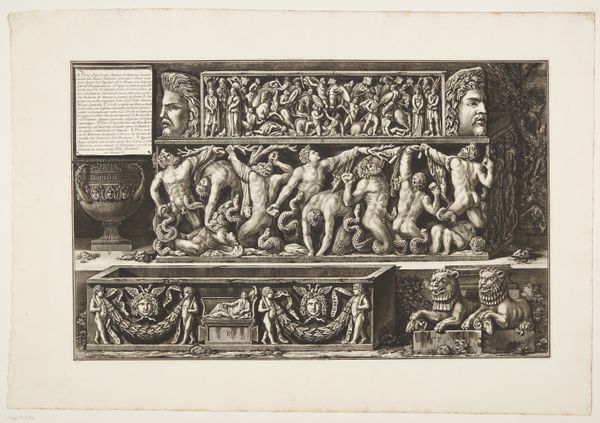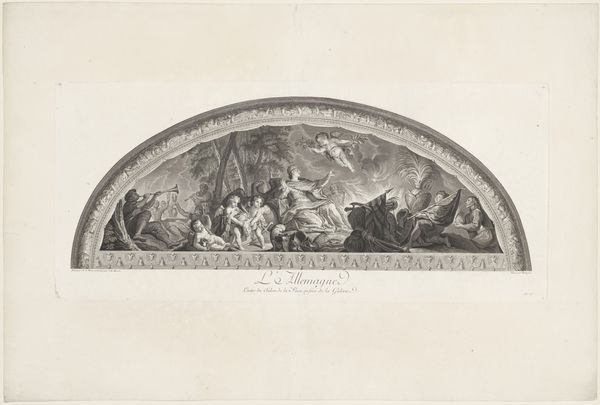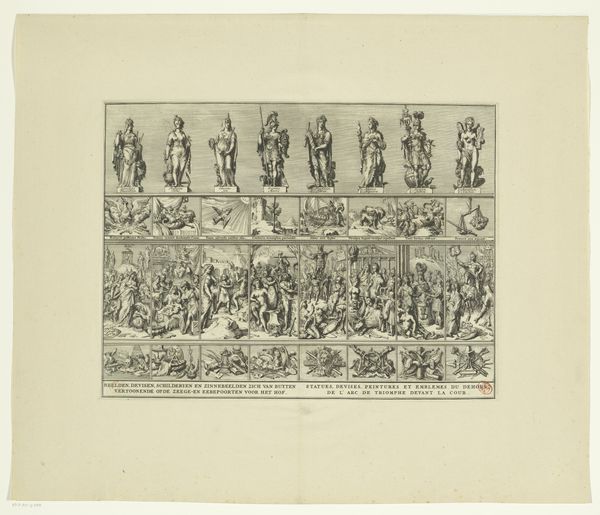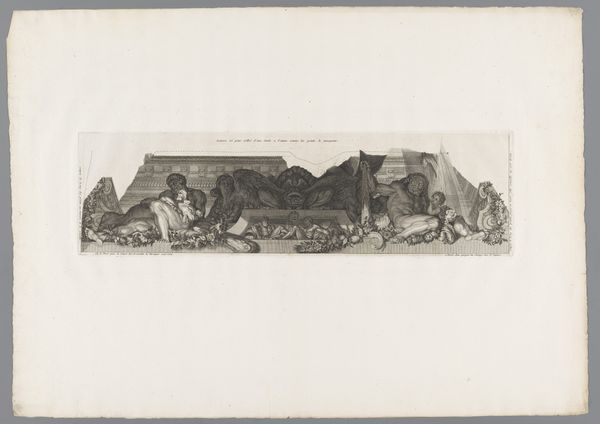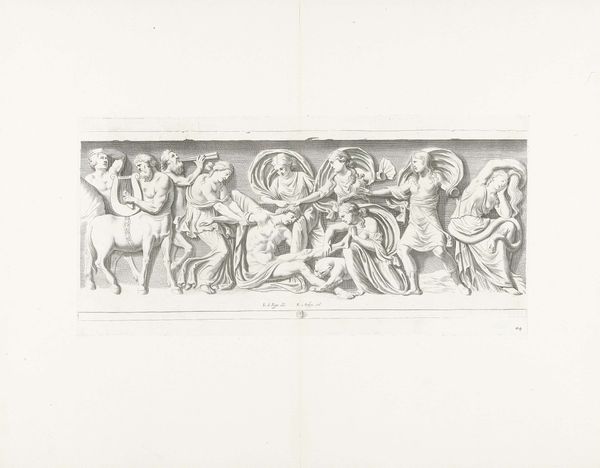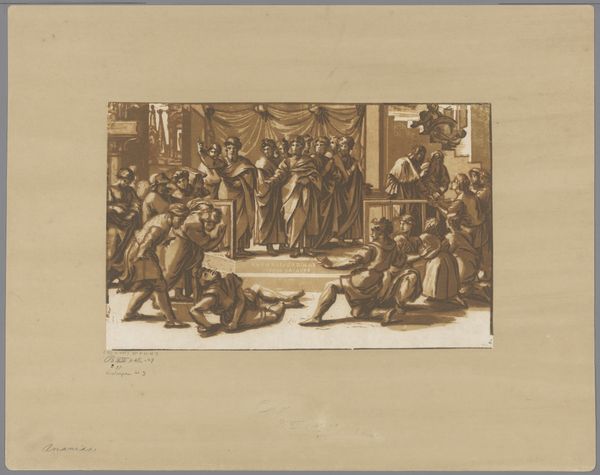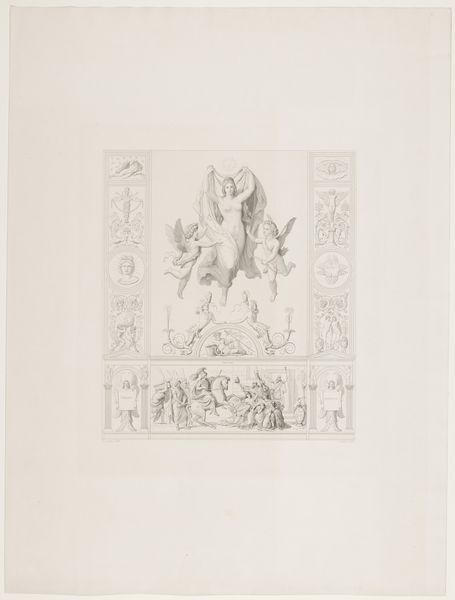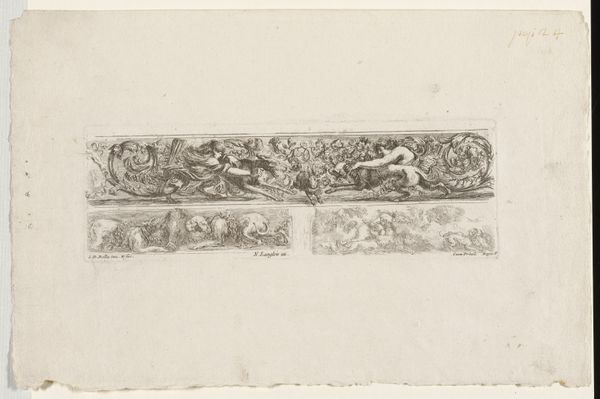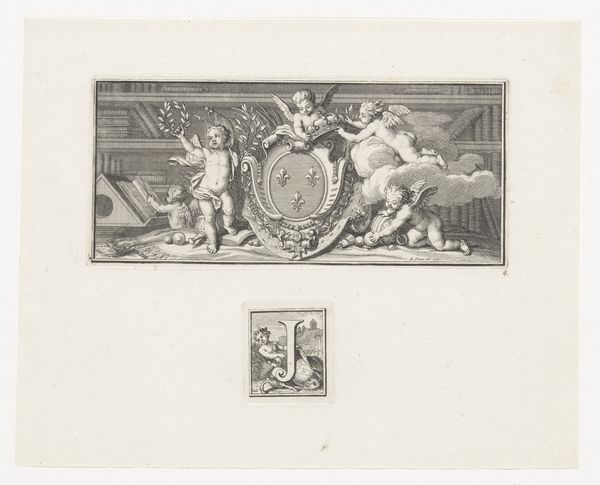
print, relief, engraving
#
narrative-art
#
baroque
# print
#
relief
#
classical-realism
#
figuration
#
ancient-mediterranean
#
history-painting
#
engraving
Dimensions: height 199 mm, width 282 mm
Copyright: Rijks Museum: Open Domain
This print, made by J. Baugin in 1639, depicts a relief on the Roman triumphal arch in Orange. The artist used etching, a printmaking technique involving biting lines into a metal plate with acid, to replicate the stone carving. Look closely, and you'll notice how the crisp, precise lines of the etching mimic the sharp details of the original relief. The contrast between light and shadow gives depth and volume to the figures, echoing the way the sun would hit the carved stone. This print serves as a record, a way to disseminate the image of Roman power and military prowess. The act of etching itself involved a meticulous process. It demanded skilled labor to transfer the original design onto the metal plate. This print transforms stone into ink, and a grand monument into something easily reproduced and shared. It underscores how even the most monumental achievements are mediated through processes of making.
Comments
No comments
Be the first to comment and join the conversation on the ultimate creative platform.
